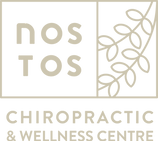How a Rotator Cuff Injury Can Affect Your Daily Life
- Dr. Sean de Lima Thiel
- Nov 25, 2022
- 2 min read
Updated: Feb 7, 2025
You use your rotator cuff muscles and tendons every day without even thinking about it. They help you raise your arms, reach for things, and lift objects. But what happens when you injure your rotator cuff? Suddenly, everyday activities that you took for granted become a lot more difficult. Here's a look at how a rotator cuff injury can affect your daily life.

Reaching for Things
One of the first things you'll notice after injuring your rotator cuff is that reaching for things becomes more difficult. Whether you're trying to grab a can of soup off a high shelf or put on a shirt, you'll find that your range of motion is severely limited. Even simple tasks like combing your hair or brushing your teeth can be difficult to do with an injured rotator cuff.
Lifting Objects
In addition to making it difficult to reach for things, an injured rotator cuff can also make it difficult to lift objects. This can make it hard to do things like carry groceries or pick up your child. Even lifting your arm to wave goodbye can be painful.
Sleeping Comfortably
If you've ever tried to sleep with an injured shoulder, you know that it's not easy. The pain can make it difficult to find a comfortable position, and the constant stiffness can make it hard to fall asleep in the first place. An injured rotator cuff can also make it difficult to turn over in bed, which can disrupt your sleep even further.
If you have a rotator cuff injury, you're not alone. These injuries are quite common, especially among people who play sports or do other repetitive motions with their arms. While a rotator cuff injury can be painful and inconvenient, there are treatments available that can help you heal and get back to your normal daily activities.
At Nostos Chiropractic, our approach is to work with your body and help create new functional patterns to support the recovery of your injured muscles and tendons. We do this by reprogramming dysfunctional movement patterns, improving posture, and adjusting spinal misalignments.
If you'd like to benefit from the work that we can offer, book an assessment with us today.




Comments